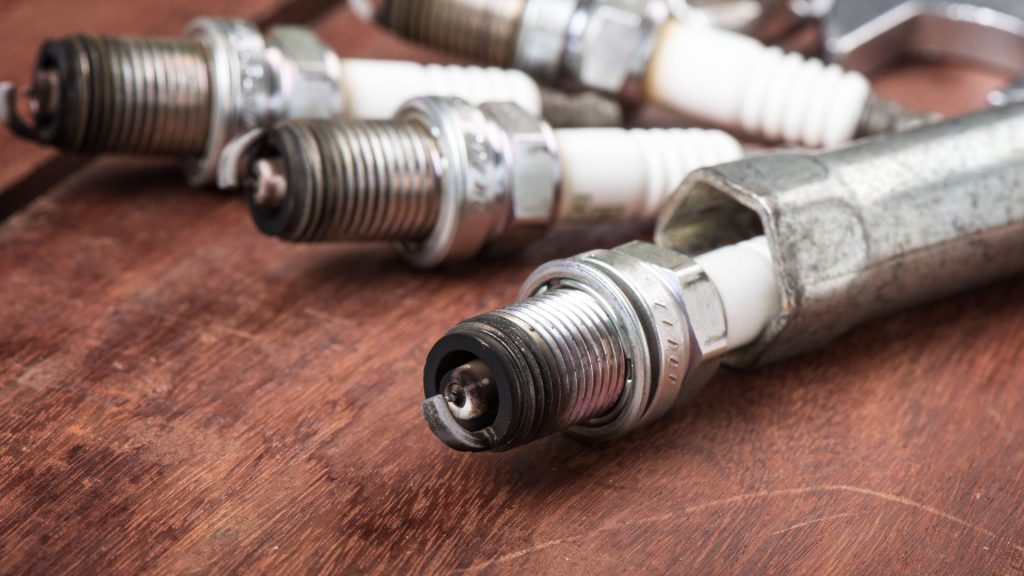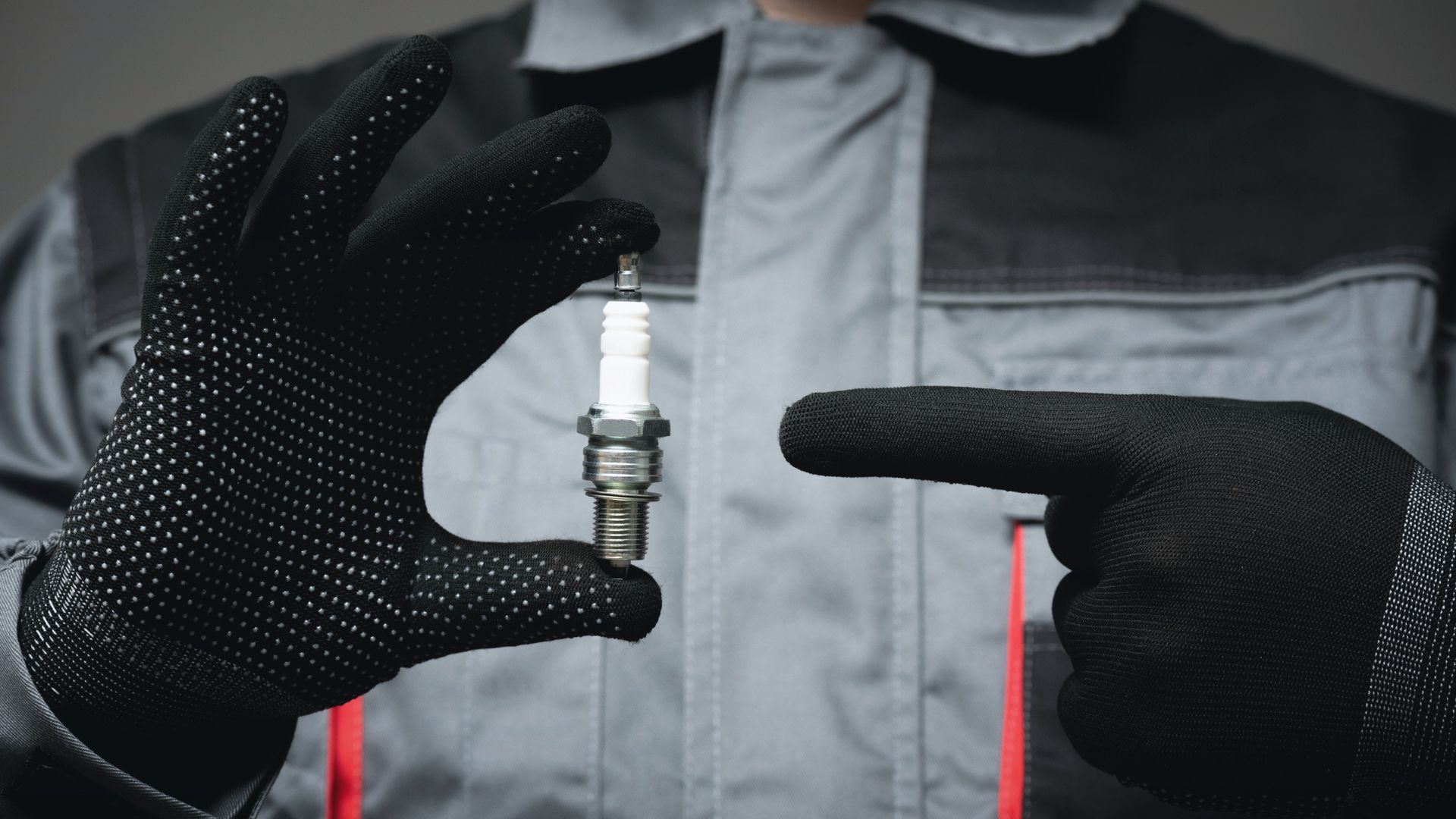Can bad spark plugs interfere with a vehicle’s transmission? No, it cannot, at least not directly. The guide below will clarify.
Can Spark Plugs Affect Transmission?
The spark plugs and transmission have nothing to do with each other. The spark plugs are concerned with the combustion process in the engine. On the other hand, mechanics associate the transmission with a car’s wheels.
You don’t expect bad spark plugs to affect the transmission’s operations. But what about those scenarios where the spark plugs seemingly create instabilities in the transmission? Those situations will make sense once you understand the signs of a bad transmission, which include:
1). Shifting Challenge

The gears will become a challenge to shift. Expect resistance, not to mention thudding and grinding sounds. In the case of manual vehicles with a dragging clutch, the gears will become impossible to change.
2). Slipping
Listen to the sound of the engine in an automatic vehicle. The pitch will change once the transmission slips. The RPM will spike even though the speed remains unchanged. The acceleration will suffer. Don’t be surprised if the car loses power.
Many vehicles have a ‘Limp Mode’ that activates to prevent careless individuals from driving a car with slipping gears.
3). Delays
If the gears shift smoothly, the transmission may take longer than usual to respond. Experts blame this issue on a faulty clutch system that damaged the transmission. The acceleration will suffer.
4). Noise
A bad transmission can generate strange noises, including buzzing and clunking. Cars have numerous moving parts that produce odd sounds when a fault occurs. But the mechanical noises from a bad transmission are harsher than usual.
5). Shaking
This is the most notable sign of a bad transmission: the car shakes and trembles. Harsh clunking sounds accompany these motions.
6). Leak
Look for a red fluid beneath the car. If you detect a sweet scent, transmission fluid is leaking. Leaks are relatively easy to diagnose and resolve. But they can harm the transmission if you allow them to persist.
Why do Some People Associate Faulty Spark Plugs With Problems In The Transmission?

1). Misfires
The only significant connection between spark plugs and transmissions is a spark plug’s ability to cause a misfire. Misfires originate from problems in the ignition and combustion processes. You can blame the air/fuel mixture and early or late ignition.
Misfires create complications because they cause power loss. This is a problem because modern vehicles have computer systems that shift the transmission. Misfires originating from bad spark plugs can interrupt the computer’s operations, preventing the system from shifting the transmission.
If it sounds like your transmission is misbehaving, you can blame the spark plugs. But spark plugs are not the only source of misfires in a car. What if you have a bad vacuum line? Don’t replace the spark plugs without consulting a mechanic.
2). Noise
Vehicles with bad spark plugs can generate unexpected sounds, especially during idling. Once again, misfires are often the cause. Car Cody expects imbalances in the fuel/air mixture to create loud explosions in the exhaust system. Even more problematic is knocking in the engine, which can harm the pistons, rings, and valves if the issue goes unresolved.
But if you only associate noisy vehicles with a bad transmission, you may blame the sounds from a bad spark plug on the transmission. This is why laypeople must learn to identify the signs of a bad transmission.
For instance, you can’t blame the grinding and clunking noises on the spark plugs if they only manifest when you change the gear.
3). Vibrations
Bad spark plugs can cause the car to shake or vibrate noticeably. The amount of shaking depends on the number of cylinders and the source of the fault. Unfortunately, a bad transmission can also lead to shaking and vibrating.
People use terms like ‘Juddering’ to describe this sensation. This compels some laypeople to blame foul spark plugs for the shaking a bad transmission has caused. Some vehicle owners will blame shaking from bad spark plugs on the transmission.
They will troubleshoot a healthy transmission extensively because they don’t realize that defective spark plugs can also produce vibrations. But once again, the source matters. First of all, shaking from a bad transmission feels more like ‘Jerking.’ The sensation is more jarring.
Secondly, a basic inspection will tie the jerking to low transmission fluid, a damaged clutch, and the like. The shaking may occur as you shift the gear.
4). Fluctuating RPM
Bad spark plugs can lead to a fluctuating RPM because they won’t fire as expected. You may observe higher RPMs and lower acceleration. Additional symptoms include excessive vibrations and a louder noise than you usually hear.
Interestingly enough, you can also blame a high RPM on the transmission. Prominent culprits include leaking transmission fluid and a slipping clutch (The clutch and transmission system work together to change and engage the various gears).
You can see how a layperson may blame fluctuating RPMs caused by the transmission on the spark plugs or vice versa. However, the spark plugs cannot increase the RPM by harming the transmission. Additionally, you can’t blame a fluctuating RPM caused by bad plugs on the transmission’s actions and operations.
Even though they can produce similar malfunctions when they misbehave, spark plugs and transmissions have nothing to do with one another. Fortunately, spark plugs are easy to diagnose and troubleshoot. Try to rule them out as potential culprits as soon as possible.
Keep in mind that spark plugs can last 100,000 miles. You can start suspecting them once they exceed that threshold. A visual inspection will also put you at ease. Look for corrosion and foreign deposits that betray the spark plug’s interactions with substances like oil and coolant.
If you’re lucky, the ‘Check Engine Light’ will warn you about a defective plug before things go wrong. The last thing you want is for your car to refuse to start because the spark plugs are dead.
But again, anyone can diagnose a faulty spark plug. If your vehicle’s symptoms originate from a bad transmission, you should seek professional assistance.
Related post:

